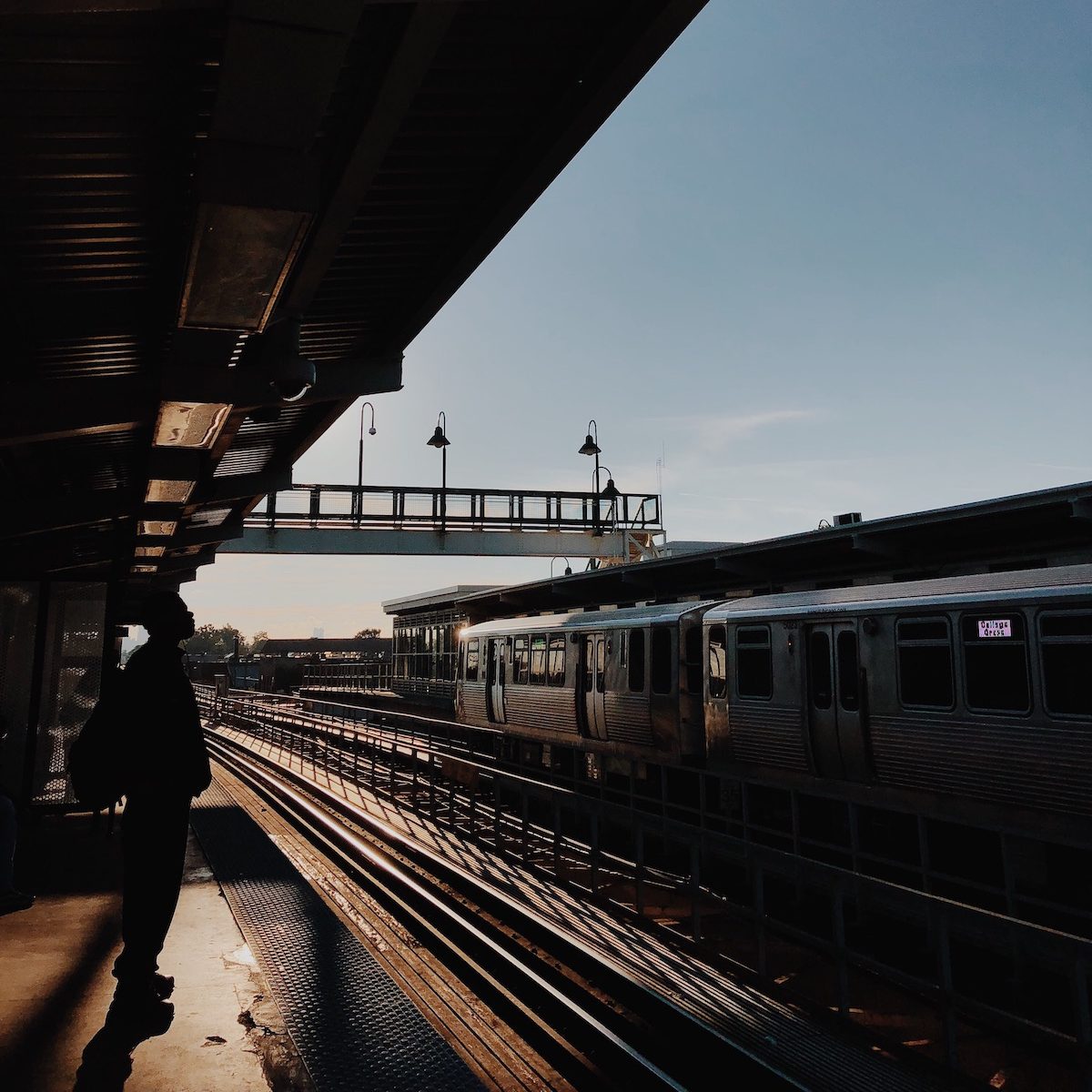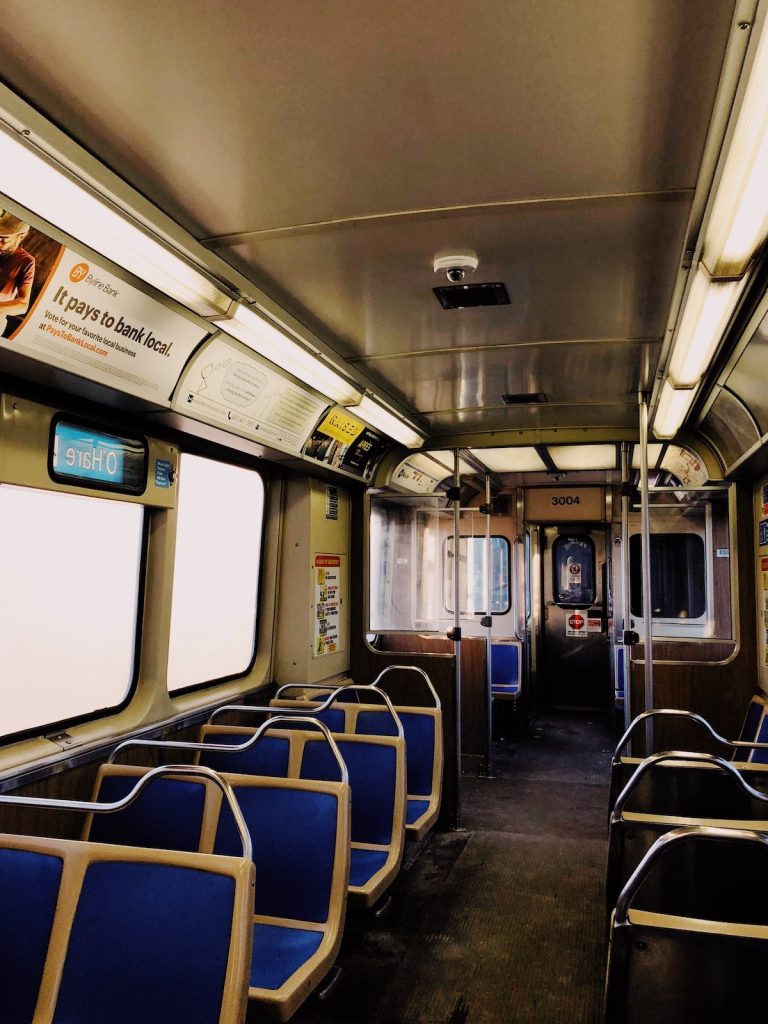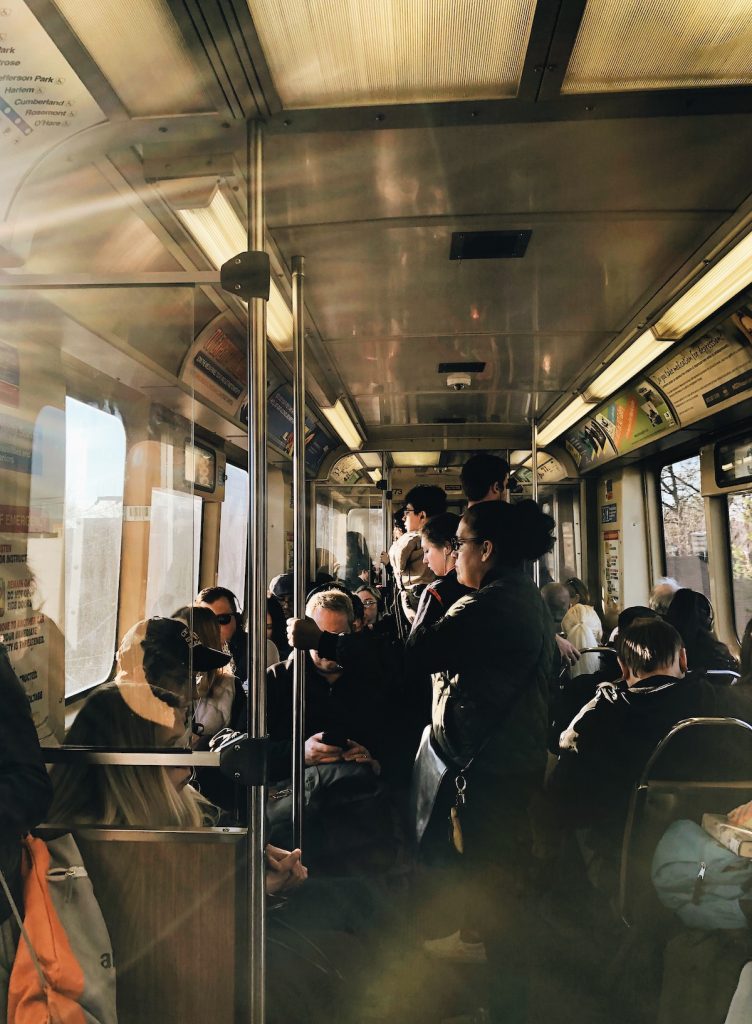
Coronavirus has stolen so much of what makes us feel human.
A Sunday walk around my neighborhood on an early spring day when the streets should be buzzing with activity is instead eerily silent. When I do see a neighbor we nod an acknowledgement and then cross to opposite sides of the street to maintain a safe distance. When I walk with the kids, I tell them to stay away from people—the opposite of what I’ve communicated with my words and actions every day of their young lives until now.
We no longer ride the bus or board the el. What was once the portal into the pulsing rhythm of our city is now a thing of fear and distrust. Riding public transit has always been the quickest antidote on days when I feel locked inside my own thoughts, days when I need a wake-up call to bust out of my self-absorption. The simple act of sharing a subway pole with another’s hand, bracing together against the lurch of the train jolts me into reality: I am human, one of billions, no more and no less valuable than the next. It has been weeks since I’ve felt that wash of comfort, of belonging.

Places we love to gather are barren. Void of the hum of voices, of music pumping out of someone’s portable speaker, of cries of recognition between neighbors, of children yelling and dogs barking and bike bells ringing. Concert halls are shuttered, theaters are locked, florists are closed. Handwritten signs on windows say we miss you and we will be back soon and thank you for your support. I squeeze my eyes shut and wonder how soon is soon.
The past few days I’ve heard church bells at 9 am and noon. I’ve never heard the sound of bells from my home before. Maybe the nearby church has begun to share this gesture of hope or maybe it’s the absence of traffic noise that brings the sound to my ears, but the chime of the bells unlock an unnamed emotion that’s been gnawing at me for the past weeks.
I’m grieving.
The simple things that animate my life have been taken. The invisible enemy making those red lines on the graphs spike upward a little higher each time I log in to read the news is also making it unsafe to hug my friend when I see her. It empties streets and restaurants and paychecks and social calendars and a part of my heart.
People in my city are getting sick, dying. Jobs are snuffed out. Dreams are shattered, hopes deferred, fears are keeping us up at night. Our grief is collective.
Understand me: I am not a healthcare worker or first responder or janitor or bus driver or grocery store employee risking my health every day to keep the city awake for everyone else. I’m not a mayor or governor or daycare manager trying to strike a balance again and again. I’m a regular person pounding out a dream of an online space for urban families from the desk in my house—a coffee shop if I’m lucky. And I am lucky. Our family still has income (for now), and sheltering in place is more an inconvenience than a true hardship. I have less to grieve than most, but I’m still grieving.
I read articles by columnists opining that urban density is our weakness, that the coronavirus will decimate our cities and those who are left will not want to stay and I want to yell. Density is a weakness, yes, but it is our great strength! Just read the Nextdoor threads of neighbors helping each other, leaving addresses and grocery lists and effusive thanks. Remember the stories of great physicists and thinkers congregating in cities to reach breakthroughs and make discoveries. Think of the marches against injustice where strength and victory and density were inseparable.

Our cities will shine again. Trains will again be crowded, so crowded that you can smell the sweat of the person beside you. We will have concerts and block parties and see movies shoulder-to-shoulder and give hugs and handshakes without a second thought. We will no longer recoil from a stranger when we realize we’ve broken the 6-foot barrier. We’ll leave our houses and fill playgrounds and stadiums and churches and restaurants. Some days are easier than others to believe that our cities will shine again, but I believe it. I have to.
When this is over, I think we’ll weep together. We’ll grieve our losses, remember our loneliness, and carry a deeper sense of community than we did before. Maybe some of us will leave our cities, and some of us will stay. Perhaps a few will be drawn in by stories of solidarity. We will be stronger in some places and weaker in others. No one can tell the future, but I can tell you one thing:
Our sidewalks will not be empty forever.
